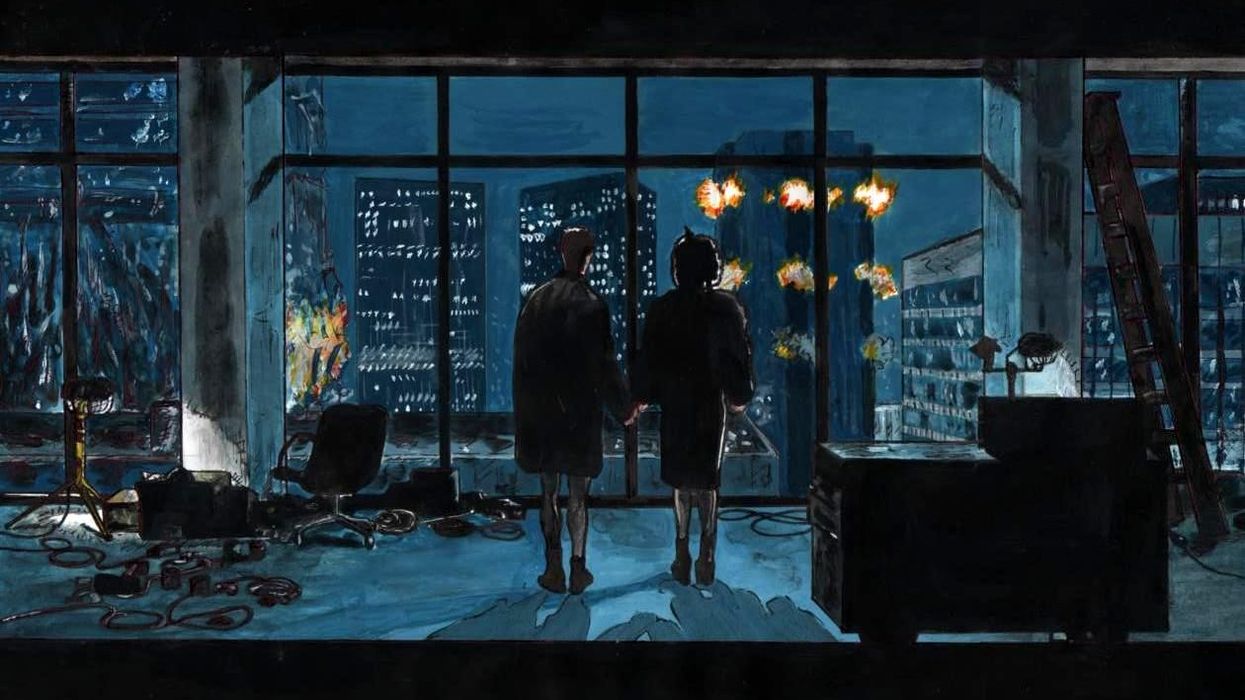Watch: Is David Fincher Actually a Pop Artist?
David Fincher's soundtracks do what the best classic music videos do.

One reason members of the video essay demimonde, the population of people who make and appreciate video essays, keep coming back to David Fincher is that his films are very educative; you can, in fact, feel that you are learning something crucial about filmmaking just by sitting and watching them. And then But what great filmmaker can't you say that about? would be the obvious question, and a fair one.
The tracks Fincher deploys are crucial to their films, even if they at times seem to exist in direct reaction to them.
The difference here is that everything in Fincher's films—their dark moods, their aggressive cinematography, their nihilistic storylines—strive to push us away from looking at their architecture. But if you look, you find extensive planning and meticulous organization threaded together by a pop sensibility. In Julian Palmer's latest great video essay for The Discarded Image, he takes a look at Fincher's use of music in his films, and the ideas he uncovers could be of use to filmmakers of any kind. The tracks Fincher deploys are crucial to their films, even if they at times seem to exist in direct reaction to them. Check out the video essay, and read our top takeaways, below.
Enhancement
The most obvious use of a soundtrack is to enhance or amplify whatever mood may be developing in a film: the unexpected sample Palmer chooses is from a scene in Fight Club's secret meeting house. The music: Tom Waits' "Way Out West." Waits has so many different modes, and this one could best be called his "brawler" mode: slamming guitars; short, punchy lyrics; a volume knob all the way up—and what could be better for a scene about men who like to hit each other for fun?
In the same film, we watch buildings collapse to the beloved strum of The Pixies' "Where Is My Mind?" Why does it work? Because it works. The band's Joey Santiago says he gets goosebumps just thinking about the scene, and that's about right; when a piece of music fits a scene perfectly, you can feel momentarily haunted, and yet the trick is, that piece of music might not always be the most obvious choice.
Commentary
Music can also, of course, comment on a scene. (It was not for nothing that the word ancient Greek dramatists used for their bands of roving MSNBC precursors was "chorus.") Fincher pops Bowie at the end of Se7en, Nine Inch Nails at the beginning: at the fore, a remix of "Closer," a desperate cry for help, and at the aft "The Heart's Filthy Lesson," a song about a detective trying to right his wayward partner—which is somewhat ironic, given the famous ending of the film. What was in the bo-o-o-o-o-o-o-x? And given what was in the box, who wouldn't have done what the detective did? But then, and this is important too, at what point of emotional extremity would you have to be to do that, as a professional detective, working a case?
Palmer offers us other examples too, perhaps none so poignant as Donovan's "Hurdy-Gurdy Man," rolling as the killer in Zodiac puts another violent, bloody notch on his belt. When viewers watch these scenes, if they're listening to the music closely, their minds pop, a little bit. The music offers a perspective that the film might not be able to provide directly.

Theme delivery
Palmer also shows us that a film's thematic purpose can be swiftly and efficiently driven home by the right music. The overarching story in Mindhunter, that of a man desperately trying to get his mojo back after a case he worked on ended with a bloody suicide, is that of inner redemption; the world is ready to forgive you, but you're not ready to forgive yourself. Given that that idea is somewhat buried in the pyrotechnics and the excitement of the show, what better song to play than Led Zeppelin's "In the Light," a winding, plaintive ode to the difficulty of picking yourself up? It seems like the wrong choice for the very end of the series—why not play something triumphant, decisive?—but Fincher chooses a more mellow, reflective song, and...it works.
TL:DR
The short version is that David Fincher, music video director extraordinaire, is well-versed in the art of taking Situation A and placing Surprising and Unusual Audio Track B alongside it; that was, after all, the revelatory part of the earliest music videos—their ability to shock us with the dramatic scenarios rolling across our favorite songs. This skill can be used for many different purposes in a film, and few do it better than Fincher.
What's your favorite Fincher track moment? Paste a clip below!
Source: The Discarded Image












